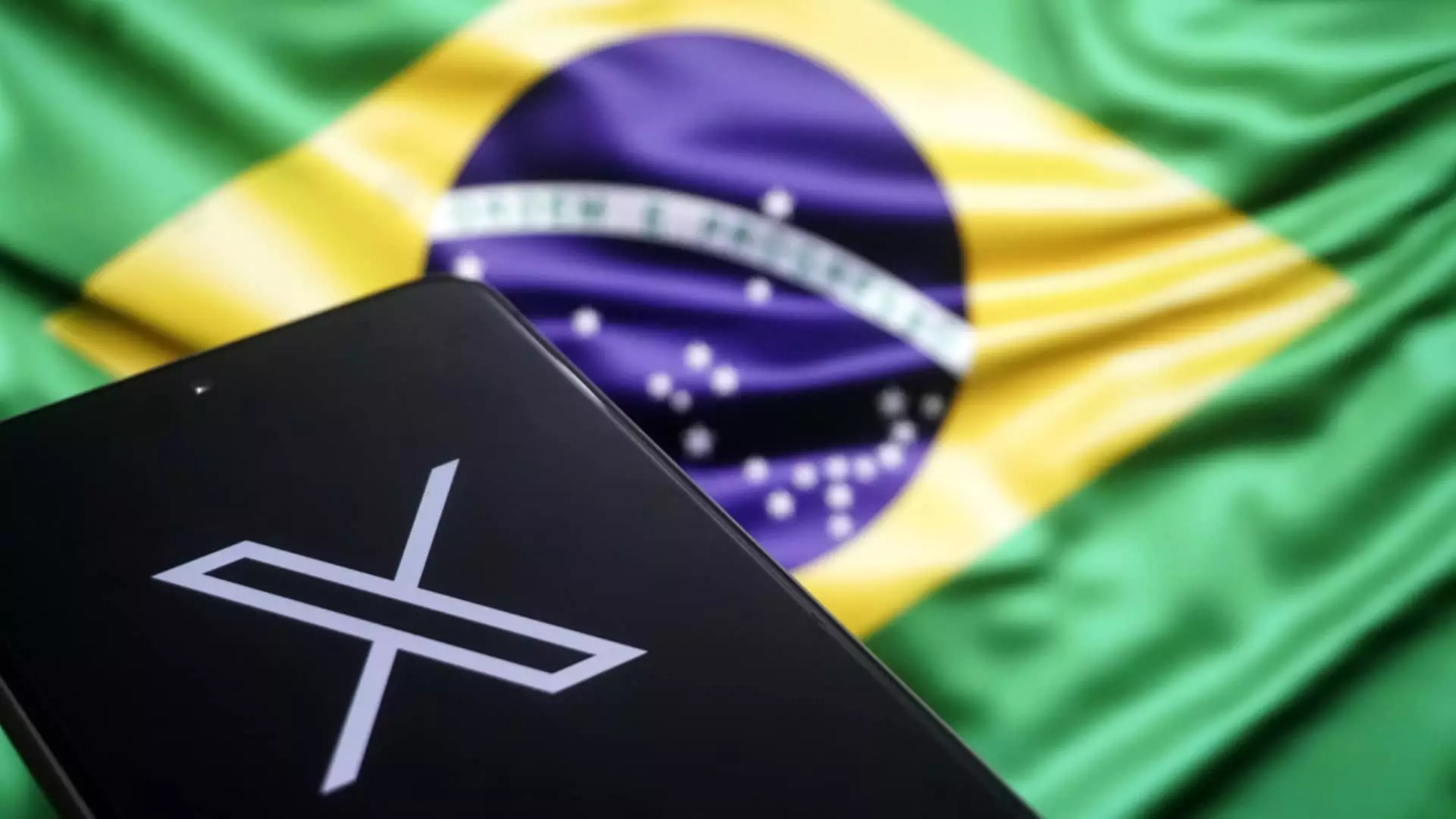After a protracted legal struggle, Elon Musk’s social media platform X, formerly known as Twitter, is set to re-establish its operations in Brazil. The reinstatement comes on the heels of a contentious standoff with Alexandre de Moraes, Brazil’s federal supreme court minister. This confrontation showcased the escalating tensions between major tech companies and national regulations—particularly in a nation striving to combat online hate speech, misinformation, and to uphold democratic integrity on digital platforms.
X’s return to Brazil underscores the broader narrative of social media platforms resisting compliance with local laws. The company’s global government affairs account celebrated the move, affirming its commitment to freedom of speech while navigating the often tumultuous legal landscapes in which it operates. This sentiment, however, must be viewed critically in light of Musk’s previous disregard for the court’s mandates, which ultimately led to a suspension of the platform in August.
Brazil’s stringent internet regulations necessitate that tech companies implement measures to curtail harmful content and misinformation. The requirements include appointing a local legal representative—a mandate that Musk originally resisted. Instead of seeking a diplomatic resolution, Musk opted for confrontation, publicly disparaging Minister de Moraes and dismissing court orders as arbitrary.
This case reveals not only the friction between X and Brazilian authorities but also raises questions about the accountability of tech companies. By circumventing local laws, Musk’s X faced the reality of possible legal repercussions that could have included heavy fines and a freeze on business accounts. This scenario serves as a cautionary tale for companies that might underestimate the importance of compliance in nations with robust legal frameworks.
During X’s absence from Brazil, competing platforms—namely Bluesky and Threads—flourished, amassing significant user bases. The migration of users away from X demonstrated how quickly public sentiment could shift in favor of platforms that effectively meet local regulatory expectations. The uptake of these alternatives during X’s suspension could potentially reroute the dynamics of social media engagement in Brazil, illustrating that users are willing to embrace platforms that align with both their needs and the legal stipulations of their country.
As X recommits itself to operating in Brazil, it will be critical for the platform to not only adhere to local regulations but also to restore trust among its users. This trust was eroded during the suspension, as many users sought refuge in rival platforms that prioritized compliance and user safety.
Despite its current reintegration into Brazil’s social media landscape, the future of X hinges on how well it navigates the complexities of local governance and user expectations. The engagement with Brazilian authorities moving forward will significantly influence not only its operational strategies but also its public image.
X’s uneasy road back into the Brazilian market emphasizes the need for a cooperative relationship between tech giants and government bodies. As Musk faces growing scrutiny, this episode serves as a poignant reminder that the evolution of social media must align with societal values and legal structures, promoting a healthier digital ecosystem.

